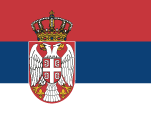Study program / study programs: INFORMATION SYSTEMS
Type and level of studies: Undergraduate applied studies
Subject: MANAGEMENT
Status: Elective
ECTS points: 7
Course objective
The course has been designed to ensure that the students acquire fundamental theoretical and practical knowledge of management. Special attention will be focused on enabling the students to apply the contemporary concepts in the processes of planning, organizing, leadership and control of organizational systems, which ensures that business is conducted in an effective and efficient way.
Course outcome
The students will learn about the relationship between a contemporary business system and its environment and the current tendencies in said environment, what changes dominate the contemporary landscape, how to manage changes in modern management and what characterizes today’s human resource management process.
The students will learn about the elements included in the organizational culture, the causes and consequences of conflicts in contemporary management, the implementation of modern technology in contemporary management, the concepts of management development, benchmarking, organization as a phase of management, leading as a phase of management, leadership and the difference between a leader and a manager, the factors that determine a manager’s profile, manager’s duties, the elements that define the manager’s authority and responsibility,managerial styles, the characteristics of a successful manager and the most frequent mistakes made by managers.
Course content
Theoretical classes
- Definition and development of theory of management
- Manager (activities, roles, required knowledge)
- Management processes (planning, organizing, HR potential management, leading, controlling)
- Planning (the nature and purpose of planning, types of plans
- SWOT analysis,
- Porter’s generic strategies model
- BCG matrix, hierarchy and types of strategies, decision-making process
- Organizing (the contempt and content of organizing
- designing the organizational structure, traditional and contemporary organizational structure models,
- Contemporary interorganizational trends – outsourcing, networks)
- Human potential management (requirement prediction, acquisition and selection, career management, performance appraisal and reward, education and development, payment and compensation)
- Leadership (the definition of leadership, leadership styles, theory of motivation)
- Control (defining the concept and process of control, the phases of control, control techniques and methods – BSC)
- Management and specialized management disciplines (strategic management, change management, crisis management, knowledge management)
